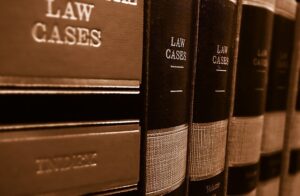
Defective Premise Liability Facts
All property owners have a duty of care to keep their property in a safe condition to prevent avoidable injuries. If you've been injured due to dangerous property conditions, call the Wake Forest personal injury lawyers at The Doyle Law Office, P.A. today.
What is Defective Premise Liability?

When an injured person seeks compensation for an accident that occurred on the property of a business or another commercial entity, the claim is usually filed under an area of the law known as premises liability law. Premise liability encompasses the legal responsibilities that a landowner and tenants of a property have for injuries and harmful scenarios that occur on their property. Anyone who owns or governs real estate, even private landowners, and homeowners, have a duty of care regarding people who are on their land.
Premise Liability Factors
When establishing liability on the part of the owner, numerous factors are taken into account. The main key factor for understanding and determining premises liability is the legal status of the visitor or lack thereof.
Status is typically broken down into four categories:
- invitees
- social guests
- licensees
- trespasser
Status is crucial when analyzing premises liability claim details.
There are a handful of other factors that are taken into consideration when evaluating premises liability, such as whether or not a property owner has tried to make a significant effort to provide a safe stay for his or her guests. When understanding and analyzing the property owner's effort, asking the appropriate questions will clear up any murky water. These questions include:
- Have hazards and loose pieces of property been cleaned up in a timely and respectful manner?
- Have guests been consistently informed and warned about any potential safety hazard or risk?
- Has the property owner been upfront about everything that may cause a risk?
- Has the owner had time to act on any potential safety hazard?
For example, if a stair in a staircase has been unstable for an extended period of time, and you trip and fall through it, then the property owner is likely to be at fault.
On the other hand, if you're doing the dishes, accidentally spill soapy water onto the floor, and your child slips on it before the owner has time to act, the case may be more challenging to make regarding owner liability.
The magnitude of care that is owed to a someone varies significantly depending on the reason why the property was visited in the first place. Trespassers have no legal right to be on a property and are not owed much duty. On the other hand, if a property is visited by someone for a business or shopping purpose, they would be owed a much higher amount of security.
Included in the duty owed to business owners is a responsibility to retain the premises in a sensibly safe condition. This would include making upgrades to defective property conditions such as broken stairs or unstable railings. This also means that if a business owner fails to perform regular inspections of their property, they're likely to be liable in case of an accident.
Under North Carolina’s contributory negligence law, a defendant in a premises liability case can potentially avoid paying compensation to the plaintiff if they're able to prove the plaintiff was partially at fault for the accident.
For example, if the plaintiff was injured because they failed to abide by a clear warning posted by the defendant, or if the unsound property condition that injured the plaintiff was exposed and obvious but ignored by the plaintiff, they may be barred from receiving damages, even if the defendant failed to bring attention to the defective condition.
In these cases, it is imperative to locate witnesses as soon as possible. Our firm is experienced in locating witnesses to ensure your rights are fully protected.
There are a handful of common defective liability premise liability scenarios including:
Obstructions
Regardless of whether the obstruction lays on the floor or hangs from the ceiling, walking into an obstruction is a common liability issue. In a commercial or public space, the owner is required by law to warn of overhangs and other obstructions that may cause injury. Along with that, the owner of a property is also required to keep any walkways clear and visible for both residential and commercial properties.
Poor Maintenance
Appliances, fixtures, and other common building aspects may become dangerous when not taken care of properly. Poorly-maintained elevators and escalators are popular commercial premises liability cases. Other popular examples would be malfunctioning heating and air conditioning, malfunctioning ovens and stoves, and even malfunctioning ceiling and ventilating fans.
Slip-and-Fall Risks
One of the most common premises liability types is slip and fall cases. These incidents can easily occur due to neglected floor tile, rotting flooring components, misplaced electrical wiring, leaking sink areas, or leaking ceilings that eventually drip onto a walking area.
Poorly Controlled Dogs
Owners of pets are responsible for injuries caused by their animals. If a property owner has an aggressive and threatening dog, and the dog was to bite or attack due to poor training or a lack of a fence or leash, the owner is likely liable. In the case of a dog bite, seek medical attention immediately and contact The Doyle Law Offices, P.A.
Deficient Security
When an employee or customer is injured during a robbery, vandalism incident, or break-in, the security of the business is closely examined for any type of negligence. If the security of the business is not sufficient, the company can be held liable for any resulting injuries.
Do You Need Defective Premise Liability Representation?
The Doyle Law Offices, P.A. has the experience and the dedication to give you and your family the kind of legal representation you deserve. We are conveniently located in Cary and Wake Forest and can represent clients across Wake County and the Triangle. Do not go into the fight alone. Contact our personal injury lawyer today at (984) 235-1067 or fill out the form below for a free, confidential case evaluation, and let us be your advocate in these trying times
"*" indicates required fields
